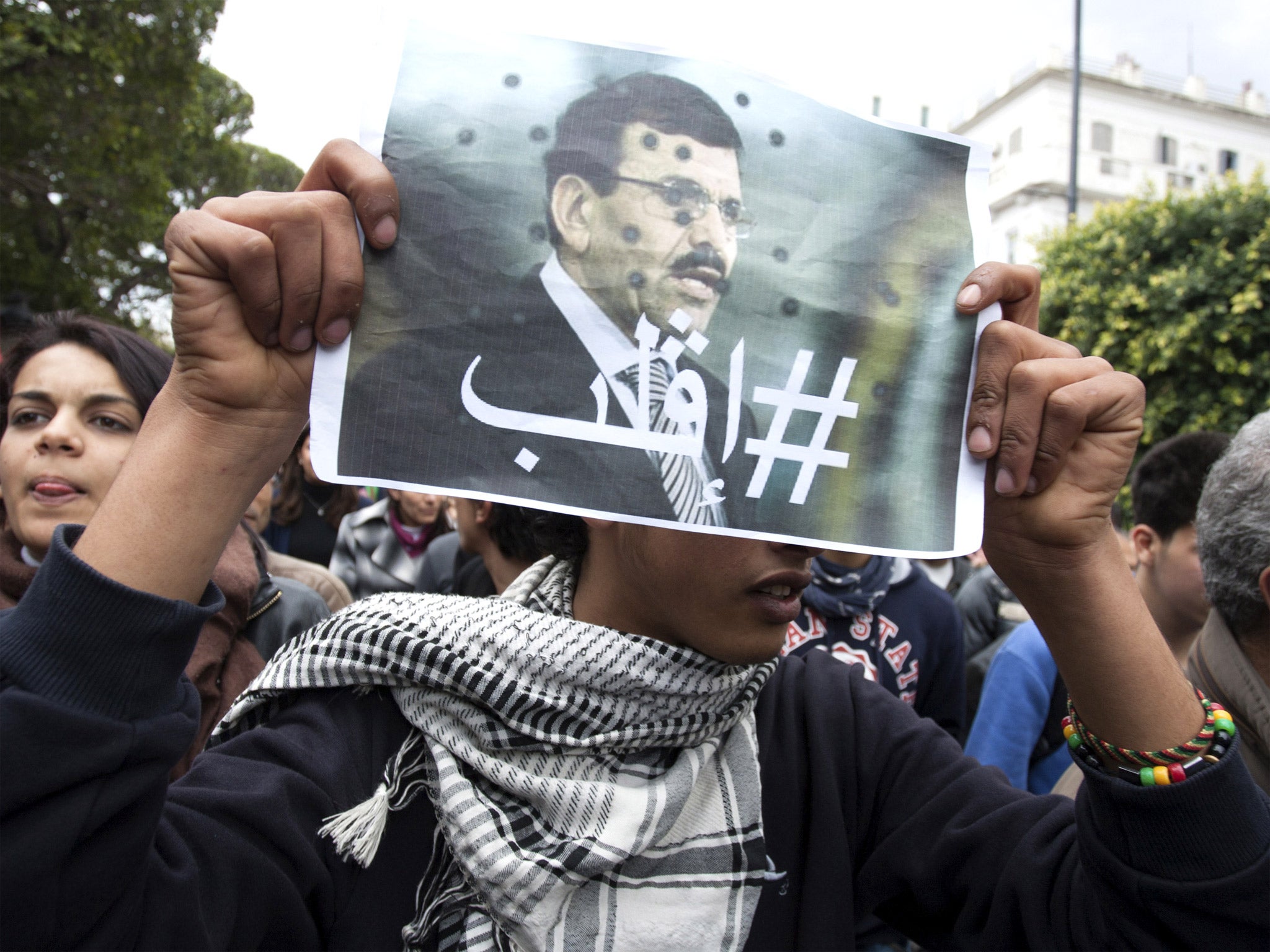Four radicals arrested as police hunt for known assassin of Chokri Belaid
Tunisia's new Prime Minister tries to ease tension after opposition leader's murder

Four people suspected of acting as accomplices in the assassination of Tunisian opposition leader Chokri Belaid have been arrested.
Interior Minister Ali Laarayedh, who is due to take office as Prime Minister shortly, said that Mr Belaid’s killer had also been identified and a search to find him was under way.
Mr Laarayedh said the four suspected accomplices had a “radical religious tendency” and that one had confessed to accompanying the assassin on the day of the murder.
Mr Belaid, a prominent secular opponent of Tunisia’s moderate Islamist-led government, was shot dead outside his home in the capital Tunis on 6 February. His murder shocked Tunisia, which had not seen a political assassination on its soil since the killing of an anti-colonialist 60 years ago.
Tens of thousands of people turned out for Mr Belaid’s funeral, many chanting slogans from Tunisia’s Arab Spring revolution and demanding the “fall of the regime”. The unprecedented reaction forced Prime Minister Hamadi Jebali to resign, leaving Mr Laarayedh to form a new government.
One of the suspects made a visit to the crime scene last Thursday, escorted by a large deployment of police and anti-terror units, to re-enact the murder and subsequent getaway.
Outside Mr Belaid’s home in a middle-class suburb of the capital, a crowd who had come to observe the re-enactment began chanting “The people demand to know who killed Chokri Belaid”.
There has been widespread criticism of the government since the killing, with many blaming leaders for failing to contain the violence of religious groups including the Leagues for the Protection of the Revolution, a network of pro-Ennahda volunteer groups who have clashed with secularist politicians and supporters throughout the country.
Security sources have frequently maintained that Ennahda’s previous incarnation – as an underground dissident movement – has made it difficult for them to manage the state’s security apparatus.
“The majority of policemen have worked against Ennahda... and the majority of Ennahda members have threatened policemen... this has contributed to creating a certain caution between police officers and the Ennahda government,” said Kamel Mraihi, a police officer who has monitored Ennahda and other Islamist groups for 20 years.
Mr Laarayedh said there was no evidence the killer and accomplices belonged to a specific group. An early report had indicated that one of the arrested men belonged to an organisation associated with the Leagues in Le Kram, a working-class neighbourhood close to the capital.
However, members of the group, called the Men of the Revolution of Le Kram, insisted their organisation aimed only to “protect the citizens of El Kram” from the violence of both police and criminals. They said that the suspected accomplice in question – named as 25-year-old metallurgist Mohamed Amin – was instead a member of the Salafist group Ansar Al-Sharia, widely believed to be responsible for a violent protest at the American embassy in Tunis last year.
Join our commenting forum
Join thought-provoking conversations, follow other Independent readers and see their replies
Comments